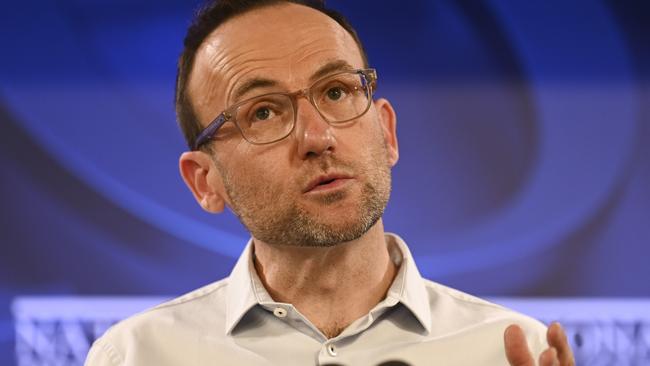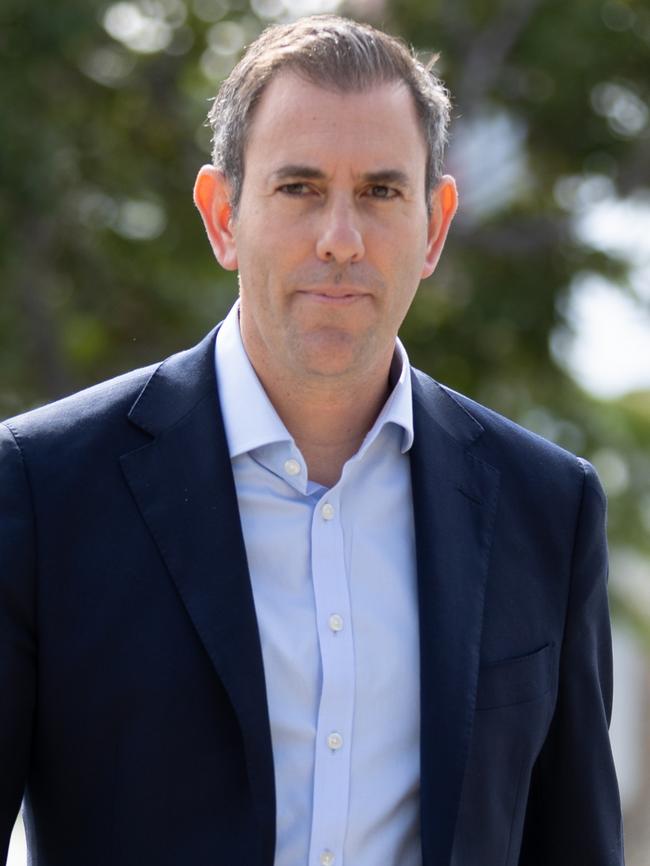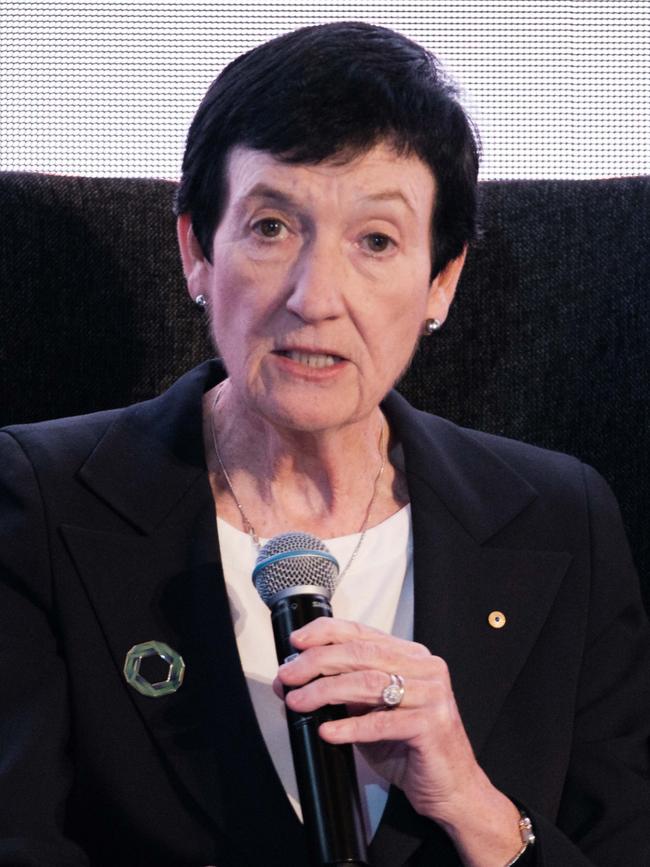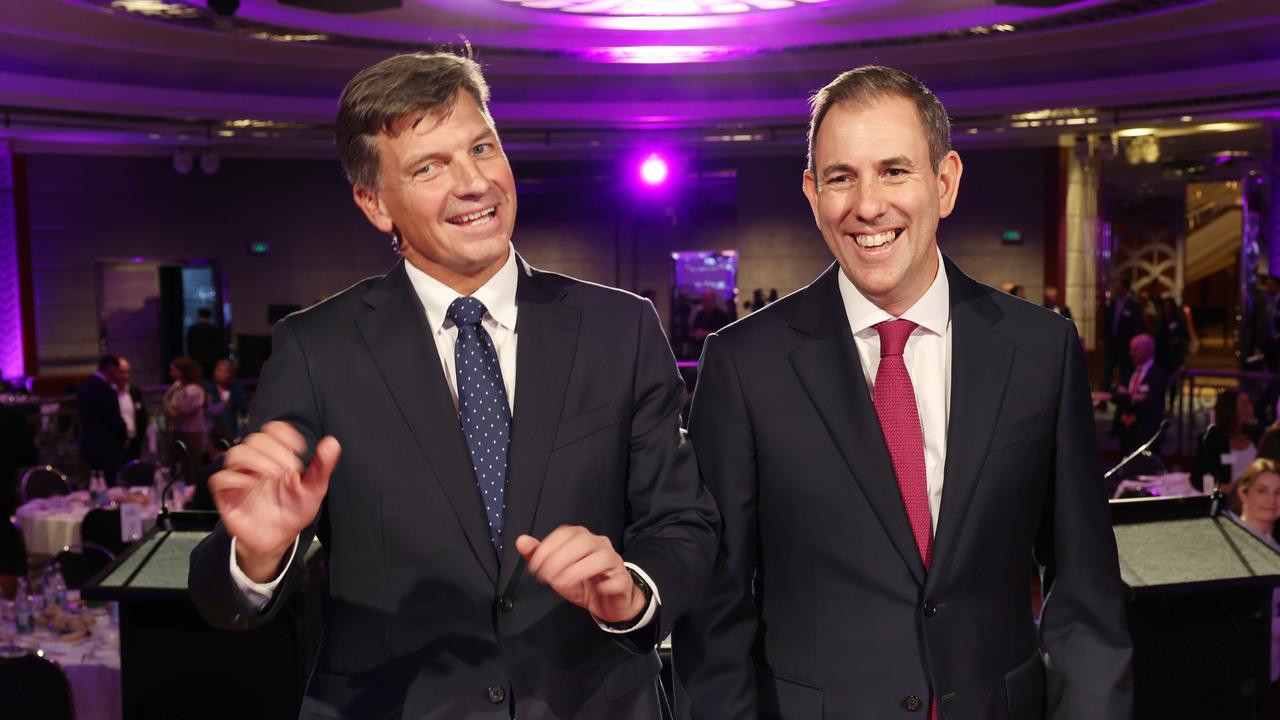Adam Bandt threatens to derail jobs summit
Adam Bandt has threatened to sabotage Anthony Albanese’s jobs summit unless the government agrees to demands for an immediate minimum-wage hike and higher pay for women.

Adam Bandt has threatened to sabotage Anthony Albanese’s jobs summit and use the parliament to block agreements struck next week unless the government agrees to demands for an immediate minimum-wage hike and higher pay for women.
The Greens leader, who will attend the summit, said he would scuttle summit outcomes and allow them to “languish as an historical footnote” if the government dithered on lifting wages.
Mr Bandt, who wields the balance of power in the Senate and is backing the ACTU push for industry-wide bargaining agreements, will push two Fair Work Act changes to increase wages for low-paid workers and announce further amendments on Wednesday.

The left-wing party wants to set the minimum wage at 60 per cent of the full-time adult median wage, or $23.76 an hour, and lift minimum wages in women-dominated industries faster by guaranteeing award-rate hikes of at least 0.5 per cent above the consumer price index.
“The Greens won’t be a rubberstamp for government side deals with big corporations. If and when any proposals from the jobs summit hit the Senate, the Greens will push to change the law to guarantee wage rises,” Mr Bandt said.
The government is unlikely to win support from Opposition Leader Peter Dutton on summit deals struck with unions, after he rejected the ACTU’s enterprise bargaining proposal as a “throwback to the 1970s” that would result in “crippling strikes”.
Business leaders released their summit wishlists, including a temporary increase of the annual migration cap to 220,000, longer-term visas and allowing employers to access training and qualification records of new staff.

Jim Chalmers will release Treasury analysis on Saturday revealing that while mining has the largest share of gross output, the services industry now accounts for 80 per cent of jobs in Australia. The analysis shows there is room to grow, with services as a share of GDP lagging behind the US, Britain, France and Japan.
The Treasurer said a key summit focus was understanding that the economy was “changing and we need to change with it”.
“Productivity is absolutely crucial when it comes to solid, sustainable wages growth – that’s what makes it such an important consideration for the summit. The data doesn’t lie – high-skill work is high-productivity work and high-wage work,” Dr Chalmers said.
Mining has overtaken the construction and manufacturing sectors over the past decade with a 14.4 per cent share of total gross output. Manufacturing has fallen in output and employment amid an “emergency of cheaper sources of manufactured goods from developing Asian economies”.
Business Council of Australia chief Jennifer Westacott released migration and skills blueprints calling for a two-year “catch-up” in skilled migration following the exodus of visa-holders during the pandemic.

“We need to move from a short-term, ad hoc system to long-term planned migration with a focus on four-year visas, pathways to permanent migration,” Ms Westacott said. “We want to see a catch-up boost to the permanent migration program, with at least two-thirds of places for skilled workers.”
The BCA is also pushing for the introduction of a “digital record that allows future employers to fully see and fully understand what people have learned through their courses and on the job”.
Australian Industry Group chief executive Innes Willox on Friday hit back at the ACTU’s claim that wages growth had not kept up with productivity. “The productivity measure relied on by the ACTU is substandard in large part because it does not correct for the very large increase in the quantity of capital used in production over the period the ACTU considers,” he said.







To join the conversation, please log in. Don't have an account? Register
Join the conversation, you are commenting as Logout